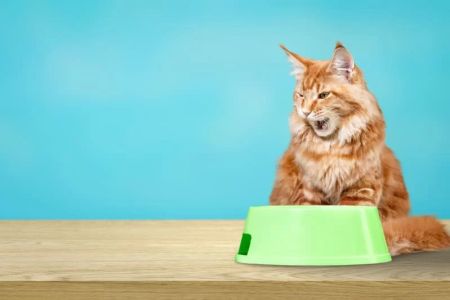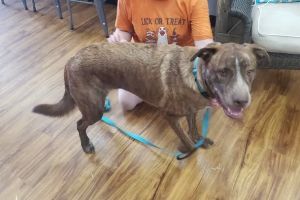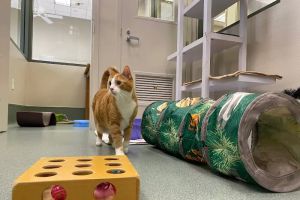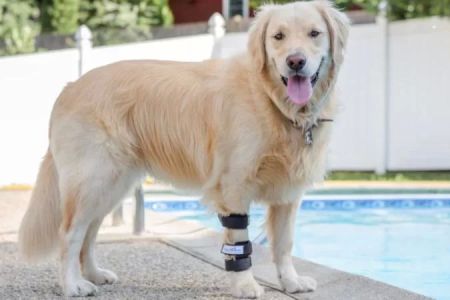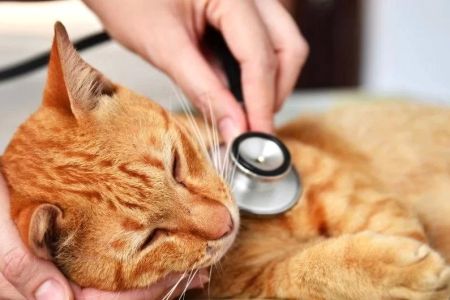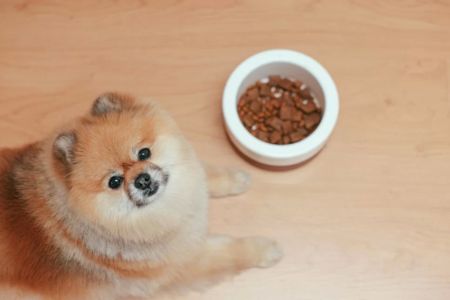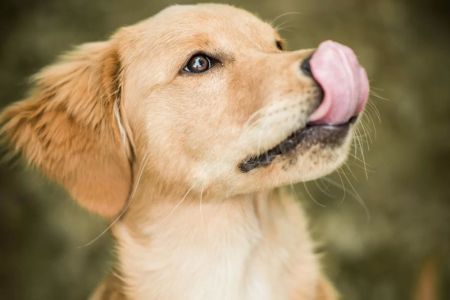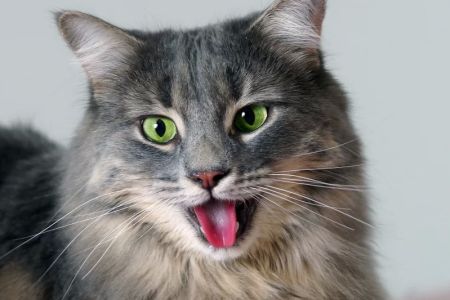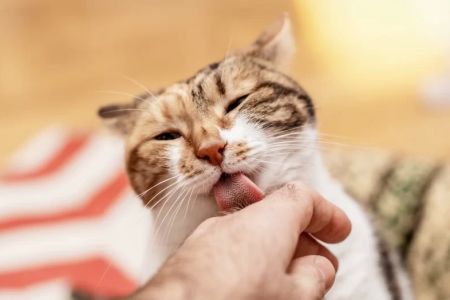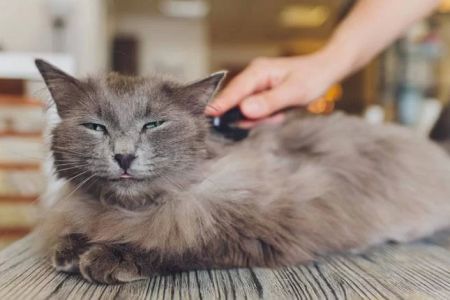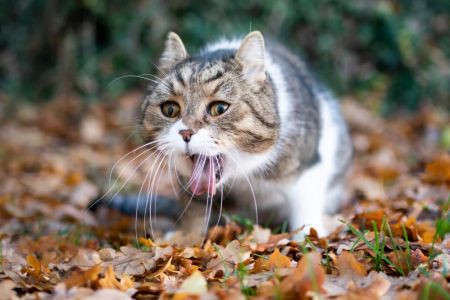Why Your Cat May Stop Eating and Drinking and What to Do About It
If you're a cat owner, you know how concerning it can be when your furry friend suddenly stops eating or drinking. It’s a situation that can be downright worrying, especially when your cat refuses to eat for days. As a pet parent, I’ve experienced this with my own cats, and it’s always nerve-wracking to watch them lose interest in food and water. But what does it mean when your cat isn't eating or drinking, and what should you do about it? Let’s dive into the possible reasons behind this behavior and the steps you can take to help your cat.
1. Stress and Anxiety Can Lead to Loss of Appetite
Just like humans, cats can be affected by stress, and it can manifest in their eating habits. One of the first things I learned as a cat owner is that changes in the environment—whether it’s a new person, a move to a new home, or even new furniture—can make a cat anxious and unwilling to eat or drink. My cat Bella, for example, refused to eat for a day after we moved to a new apartment. The unfamiliar smells and sounds made her nervous, and she didn’t want to eat her usual food.
In addition to environmental changes, stressful events like a visit to the vet or loud noises can also cause a loss of appetite. If you suspect stress is the culprit, try creating a calm environment for your cat. A quiet space with familiar scents, soft lighting, and plenty of places to hide can help ease anxiety and encourage your cat to eat and drink.
2. Illness Can Be a Major Cause of Loss of Appetite
When my cat Oliver stopped eating for several days, I was immediately concerned about his health. Cats are known to be stoic, meaning they often hide symptoms of illness. If your cat isn’t eating or drinking, it could be a sign of an underlying health issue, such as a gastrointestinal problem, kidney disease, or a respiratory infection.
In my experience, if your cat suddenly refuses food and water and shows other signs of illness—like lethargy, vomiting, or diarrhea—it’s important to take them to the vet as soon as possible. Cats can go into hepatic lipidosis (fatty liver disease) if they don’t eat for an extended period, so it’s essential to address the issue promptly.
3. Oral Health Issues Can Affect Eating Habits
Another issue that caused Bella to stop eating was a dental problem. Cats can suffer from dental diseases, including gingivitis or tooth decay, which can cause significant pain when eating or drinking. I didn’t realize at first that Bella was having trouble eating because of her teeth—she simply wasn’t eating her food, and it seemed like she was being picky. After a vet visit, I learned that she had a dental infection that needed treatment. Once she had her teeth cleaned and the infection was treated, Bella started eating again without hesitation.
If you notice your cat avoiding hard food or only eating soft food, they may be suffering from a dental problem. Keep an eye out for signs like excessive drooling, pawing at the mouth, or bad breath, as these can indicate oral issues that require veterinary care.
4. Dehydration Can Lead to Appetite Loss
If your cat isn’t drinking water for a few days, dehydration can quickly become a concern. Cats that don’t drink enough water can develop urinary tract infections (UTIs), kidney problems, or other health issues. When Oliver stopped drinking, he also stopped eating, and I soon realized that dehydration was the root cause of the problem.
Getting your cat to drink water can be tricky, but there are several ways to encourage hydration. Try offering wet food instead of dry kibble, as it contains more moisture. You can also provide a fresh bowl of water every few hours, or consider investing in a cat water fountain. Many cats prefer running water, so a fountain may attract your cat to drink more regularly.
5. Changes in Diet or Food Preferences
Sometimes, cats may stop eating or drinking simply because they’re not fond of the food you've been offering. Cats are notoriously finicky eaters, and a sudden change in their diet could cause them to refuse food. I’ve experienced this with my cats several times. For example, when I switched Oliver’s dry food brand, he refused to eat it, even though he had been eating the same food for months.
If you’ve recently changed your cat’s food or feeding schedule, try reverting to their previous diet to see if they regain their appetite. If that doesn’t work, it might be worth exploring other food options, including high-quality wet food or different flavor varieties.
6. How to Encourage Your Cat to Eat and Drink Again
If your cat has gone a few days without eating or drinking, there are several strategies you can try to help get them back on track. When my cats weren’t eating, I used a combination of techniques to encourage them. Here's what worked for us:
- Warming Up Their Food: Sometimes, warming food up slightly can make it more appealing to cats. The aroma is stronger, and the temperature is closer to body heat, making the food more enticing.
- Hand-Feeding: If your cat is being particularly stubborn, try offering food directly from your hand. Sometimes, the personal attention can encourage your cat to eat.
- Adding Broth: You can add a bit of low-sodium chicken or beef broth to your cat’s food to make it more flavorful. Make sure the broth doesn’t contain onions or garlic, as these ingredients can be harmful to cats.
- Using Food Puzzles: Some cats find eating more engaging when it’s part of a puzzle. Using a food puzzle can stimulate their hunting instincts and make mealtime more fun.
It’s also important to monitor your cat closely and ensure they’re drinking enough water. If your cat is refusing to drink, try adding water to their food or offering ice cubes to lick. If none of these techniques work, it's time to consult your vet for further guidance.
7. When to Seek Veterinary Help
If your cat has been refusing food or water for more than 48 hours, it’s time to consult your veterinarian. Dehydration and malnutrition can set in quickly, and the longer your cat goes without food or water, the harder it becomes to treat them. Don’t wait too long—your vet can perform tests to identify the underlying cause and recommend the best course of action.
When I took Oliver to the vet after he stopped eating and drinking for a few days, the vet was able to identify a minor kidney issue and provide treatment. With the right care, Oliver made a full recovery, and it was a relief to see him return to his usual playful self.
Every cat is different, and the reasons behind your cat's loss of appetite can vary. Keep a close eye on their behavior, and don’t hesitate to contact your vet if you’re concerned. Remember, your cat relies on you to advocate for their health, and the sooner you act, the better their chances for a full recovery.

